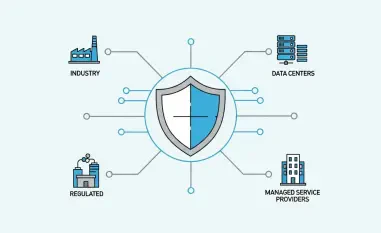In today’s technology-driven world, where cyber threats are more complex and prevalent than ever, the role of Chief Information Security Officers (CISOs) has evolved significantly. With this evolution comes a transformation in the cybersecurity landscape, where CISOs are emerging as key business enablers. Modern enterprises are looking beyond traditional cybersecurity measures, considering how these security experts can contribute strategically to business objectives. The integration of cutting-edge technologies, coupled with rapidly changing market demands, has made cybersecurity indispensable in business operations, and CISOs are at the forefront of this shift.
Introduction to the Cybersecurity Landscape
The cybersecurity industry is pivotal in protecting sensitive information and digital assets across various sectors. Modern businesses face a landscape marked by sophisticated cyber threats stemming from technological advancements such as artificial intelligence and machine learning. Key players in this arena include established tech firms, innovative startups, and cybersecurity service providers, all navigating a complex web of regulatory requirements. Compliance with laws like GDPR and industry standards like ISO 27001 remains critical as companies strive to safeguard data and maintain trust with consumers.
Trends Shaping the CISO Role
Emerging Trends and Technologies
Consumer behavior shifts and technological innovation have rapidly transformed cybersecurity, presenting both opportunities and challenges for CISOs. AI-driven risks necessitate a proactive approach to mitigate potential threats, while advancements in technology continue to drive momentum in the sector. Organizations are increasingly seeking effective strategies to harness cybersecurity tools that align with business goals, thereby enabling CISOs to emerge as strategic leaders. This trend emphasizes the intersection of cybersecurity and business innovation, fostering a more collaborative environment within companies.
Market Data and Projections
The cybersecurity market is experiencing robust growth, with projections indicating sustained expansion over the coming years. Driving factors include increasing awareness of cyber threats and a greater emphasis on data protection measures across industries. Market data suggests that investment in cybersecurity solutions will continue to rise, ensuring organizations are well-equipped to manage emergent risks. As chief security officers adapt to these changes, they are strategically positioned to advocate for robust security practices that align with organizational goals.
Challenges in the Evolving Cybersecurity Environment
In this dynamic environment, CISOs face multifaceted challenges ranging from technological obstacles to regulatory hurdles. Navigating the complexities of rapidly advancing technologies and diverging market demands requires adaptive strategies and robust solutions. These obstacles underscore the importance of innovative approaches, such as integrating security awareness initiatives company-wide and fostering a culture that prioritizes cybersecurity. Such strategies empower organizations to overcome adversities and embrace the continuous evolution of the cybersecurity landscape.
Regulatory Landscape and Compliance
Compliance remains a central theme in the cybersecurity industry, with regulations shaping sector practices and influencing strategic decisions. Significant laws and standards, including CCPA and NIST frameworks, guide organizations in fulfilling their cybersecurity obligations. Recent regulatory developments have emphasized accountability and transparency, urging companies to tighten security protocols and prioritize data privacy. Effective compliance measures, aligned with evolving regulations, are essential for maintaining consumer trust and safeguarding digital assets.
The Future of Cybersecurity and the CISO Role
Looking ahead, emerging technologies and market disruptors will further influence the cybersecurity sector, with CISOs expected to play a crucial role in shaping this future. Innovations such as quantum computing and zero-trust architectures will transform how organizations approach security, offering new solutions to longstanding challenges. Regulatory evolution and global economic influences will be pivotal in guiding industry growth, with CISOs advocating for strategies that embrace these changes. A forward-thinking mindset remains vital as companies navigate future trends and embrace CISO contributions.
Conclusion and Strategic Recommendations
The report underscored the vital importance of CISOs as strategic enablers within modern enterprises, highlighting their role in bridging cybersecurity and business objectives. To capitalize on this evolution, security leaders should prioritize tailored communication strategies, fostering a security-conscious organizational culture. Future actions involve embracing innovative security measures while ensuring compliance with emerging regulations. Companies that successfully integrate cybersecurity within core business processes can unlock significant growth and investment opportunities in the ever-evolving digital landscape.













